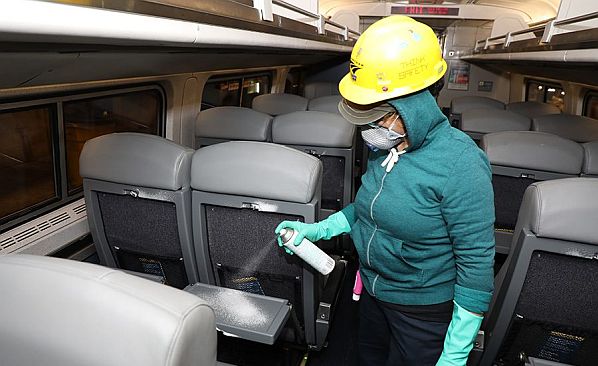OneRail, which represents passenger and freight railways, unions, trade associations and suppliers, says the additional support will help to address the continuing costs and revenue losses caused by the Covid-19 pandemic.
While OneRail recognises the provision of emergency funding for rail, as well as updates to Railroad Unemployment Insurance (RUI), under the Coronavirus Aid, Relief and Economic Security Act (Cares Act), it says more assistance is needed for passenger rail and workers.
“The Cares Act was a vital lifeline to keep these agencies running,” says Ms Anne Canby, director of the OneRail Coalition, in her letter to Congress on May 11. “Unfortunately, rail and transit agencies anticipate severe impacts for the foreseeable future and additional funding is necessary to help agencies address challenges throughout the next year.
“Investment in rail infrastructure, specifically for rail transit and Amtrak, are critical to maintaining the manufacturing and supply chain as well as ensuring the continuation of essential maintenance, repair and equipment refurbishment or acquisitions. Significant, urgent actions now could help prevent impacts as rail and transit agencies continue to address the effects of Covid-19 through next year.”
OneRail says it supports the following:
- Amtrak’s initial estimate that it will need at least $US 1.6bn in additional federal support for Covid-19-related impacts in the 2021 financial year
- the American Public Transportation Association (Apta) estimates that at least $US 23.8bn is needed for public transport emergency response funding, including to address commuter rail needs in 2021
- an additional $US 11.5m to support the Railroad Retirement Board, the removal of RUI from the effects of the sequester, and to treat RUI equally if Congress expands or extends unemployment insurance
- rail and other critical infrastructure workers should be given priority access to coronavirus testing, personal protective equipment, sanitisers, and face masks, and
- the rejection of controversial policy riders, such as permitting longer or heavier trucks to operate on the road network.

